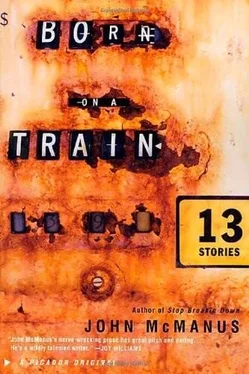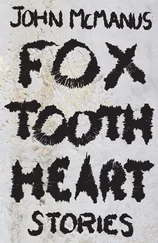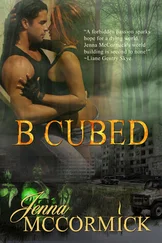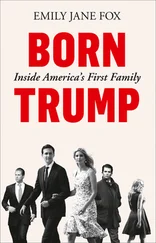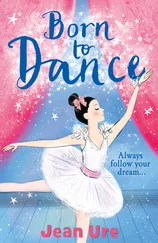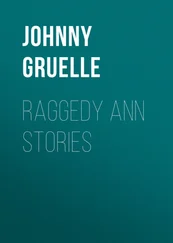Load up your gun and you whistle that dog, sang Jearold, rounding the words out drunkenly in baritone. We’re off to the woods to hunt groundhog.
Winter came early that year, and the dog got tough fast; it was already a lot tougher than Isaac was. He hoped his father wouldn’t shoot at him too. He flinched whenever Jearold picked the gun up. Jearold was drinking more and more. The dog wasn’t fun to play with now — it just growled. Isaac wondered if it would ever break its chain and pin him to the dirt, its foul breath warm on his skin as it ate his flesh. He saw ribs pressing through different shades of brown on its stomach.
He’s hungry, Isaac said.
The hell he is, said Jearold. Dumb shit’s done eat a deer this week whole.
That’s not true, said Isaac. You and Diesel and them ate most of it.
Jearold ignored him. Don’t you feed my dog, he said. We ain’t rich. He sparked a match on a round rock and lit a small, red cylinder and pitched it overhanded at the dog and clapped his hands. Isaac cried out at the sound of gunfire. The dog bolted to the end of its chain and yelped and snarled and dropped strings of drool to the mud.
You said you weren’t gonna do that anymore, Isaac said.
Gotta learn to fend for hisself, said Jearold.
Isaac felt bad for the dog, but he wanted to seem grateful for the long hours his father worked every day; eventually they wouldn’t be poor anymore. Jearold was a deliveryman for Delta. He’d wanted to be a trucker, but then he failed the tests; that was where the hole in the bedroom wall came from. Now he drove lost luggage to people’s houses and took Isaac with him on the longer trips sometimes, which made Isaac happy. He got to see far-off towns and cities: Bristol, Corbin, Coalfield. He learned how freeway exit numbers worked. He didn’t know what lay of the land meant, but he figured if he rode around enough he’d understand that soon too. He closed his eyes and dreamt of bridges, lodes of limestone late at night, deep caves to blindness. His car dreams were the only ones that weren’t nightmares.
Goddamn cunt birds, Jearold muttered when he failed to crush a vulture gutting some roadkill.
It startled Isaac. He looked at pine trees’ shadows to see if he was awake; it was hard sometimes for him to tell. All his nightmares were of mothers — his mother, for the most part, but sometimes the nightmare mother was many selves at once: Shon telle, which had been his mother’s name, and her own dead mother, and the maggots that had lived inside Shontelle’s sinuses but couldn’t speak. They had no mouths but only holes for ink. The words they wrote were baneful, and they loved each other, the maggots; they writhed and embraced.
This was Isaac’s first Christmas without his mother. The holiday was cold and dark, and Jearold had a load to deliver across the mountains to Cullowhee that night. Isaac liked to cross the Smokies. He liked the views. Jearold bought them Christmas dinner from the Hardee’s drive-thru, and they headed up the curves toward Deals Gap. Jearold waved to all the motorcyclists at the Calderwood gorge, so Isaac did too, even though they frightened him. They yelled like railroad bandits in black leather. Harley people hated Honda people, and the other way around. Isaac didn’t know much about it.
I need to pee, he said.
Piss, said Jearold. Don’t talk sissy talk.
I need to piss, said Isaac.
Jearold stopped on a pull-off at a sharp curve, and Isaac got out. He urinated on dead leaves in a ditch below a wood cross marking the location of a biker’s fatal crash. He hoped no cars would pass. The air was crisp and wintry; he could see a moonlit finger of the lake downhill, far through the woods. When he sat back down in the car, his father handed him a small, black silk bag with a drawstring and said, Merry Christmas.
Isaac took it and said, Thank you.
Open it up, said Jearold.
Isaac reached inside and pulled out a pair of Oakley sunglasses.
Them’s expensive shades, said Jearold. Isaac put them on, but they were too big for him. They were made for a grown-up. He took them off and tried to smile.
Thank you, he said again, quietly.
Ain’t this Christmas? said Jearold, looking at him. Did I screw up the days?
It’s Christmas, Isaac said.
Durn act like it, then.
Isaac nodded. When he put the shades over his eyes a second time, the scratches on the lenses marred his vision. From what was written on the bag he learned that they were made of plutonite, and the frames were graphite. He turned around and saw an open pocket on the suitcase they were delivering. A sock was hanging out. Where did you get these? he asked Jearold, who was driving quickly through steep-angled curves.
Store, Jearold said.
Which store? said Isaac.
I don’t fucken know which store, said Jearold, irritated, so he blew the horn and added, I never would of asked my daddy where he got me my present. Goddamn. Jearold had stolen things before — money, mainly, and some vodka bottles from the bar on Airport Highway. He stole a car once but he didn’t get to keep it, and now they had their own car anyway.
I was just curious, Isaac said.
What if I told you I took it out of that bag there? said Jearold. What would you do then?
Isaac looked back again at the open pocket. His mother had told him never to steal. She was a Christian. Before she died she’d given him a yellow book of Bible stories that told why bad things were bad, and Isaac knew it was wrong to steal anyway, because then the other people wouldn’t have the stolen things anymore, and they’d be unhappy.
I’d put them back, he said.
What the hell for? said Jearold.
Because I’m a Christian, Isaac said.
Jearold laughed. A Christian, he repeated. Well I’ll be.
Isaac looked away. His cheeks went red, and he realized he had spoken loudly. He knew he couldn’t return the Oakleys to the suitcase; Jearold would just take them back out and keep them for himself. Jearold didn’t own any sunglasses. He never went to church, so Isaac didn’t either, which meant he wasn’t really a Christian at all. He didn’t want to be different from his father anyway; it embarrassed him. He wished he hadn’t said anything about the glasses.
How come we don’t bring Rocks on trips? he said to make Jearold forget.
That durn mutt’d shit all through my car.
But it’s cold at home, said Isaac.
It’s cold here, Jearold said.
But we’ve got heat, said Isaac.
Heat takes gas, said Jearold. I ain’t rich.
But the heat was on in the car, although it didn’t warm them up. Isaac didn’t like it when Jearold said things that didn’t make sense. The route was steep and twisted, and he watched the stripes of moonlight on the road and tried to count them, but Jearold accelerated fast beyond a waterfall of icicles on a man-made cliff the road cut through. He picked his nose and snorted. The amber clock was brown in Isaac’s Oakleys right when midnight hit, and they were nowhere: Knoxville’s stations drowned like Asheville’s in the static. Jearold said he hated music anyhow. It made his lips itch. He liked AM better — it was talk shows, preachers, NASCAR races.
Jearold drove forty miles an hour even on the gravel road they finally turned onto. Isaac read him the directions. Jearold’s writing looked like pine twigs. Get them things off your head, he ordered Isaac when they arrived at a log cabin atop a ridge and gave an old, fat Cherokee his Gladstone bag and golf clubs. The man gave Jearold a wadded-up bill and smiled and waved to Isaac, and Jearold screeched down the driveway in reverse and grumbled, Mother, mother, motherfucker.
What’s the matter? Isaac said.
Jearold threw the dollar at him and said, There’s the matter.
Читать дальше
